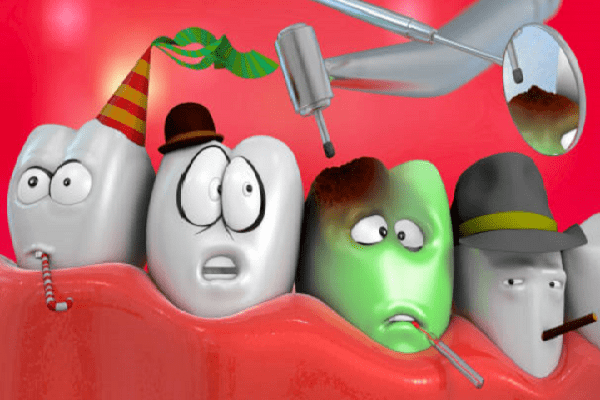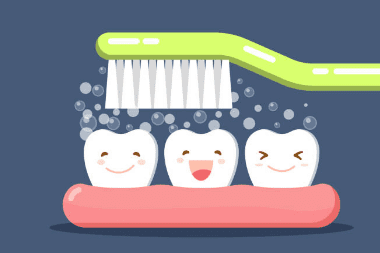Dentistry >>>> Dental caries - signs and prevention
Dental caries - signs and prevention.

Dental caries is a process of focal destruction of tooth enamel and dentin as a result of demineralization of hard tooth tissues and destruction of its matrix (organic lattice).
Caries is a long-term phenomenon, proceeding in several stages, starting with a chalk stain and ending with deep cavities in the tooth dentin. Caries can destroy the tooth to the ground, cause inflammation of the pulp chamber, periodontal gap and the entire ligamentous apparatus that holds the tooth in the jaw.
Signs of tooth decay:
- a whitish spot on the tooth on either side of the tooth and in its cervical part (close to the edge of the gum);
- visible damage to the enamel (sink), the depth of which can be determined by the doctor;
- a change in the sensitivity of the tooth due to the violation of the hard layers of the tooth (enamel, dentin) and the approach to the occurrence of the nerve endings - the pulp;
- Tooth discoloration locally (in patches).
The reasons for the development of caries and the rate of its development depend on many factors:
- hereditary pathologies of the structure of hard tooth tissues,
- harmful working conditions, where harmful substances destroy tooth enamel and dentin, acting from the outside (vapors of acids and alkalis);
- saliva composition approaching aggressive highly acidic,
- presence of foci of bacterial infection in the oral cavity,
- malnutrition with a lack of important micronutrients for the structure of tooth tissues,
- traumatic factors (bad habits) - bite hard objects with your teeth: shells, wire, threads, fishing line, etc.

The depth of the destruction process is of great importance in the treatment of caries. In cases of superficial caries, its course can be stopped and made reversible, but deep processes of destruction are more difficult to stop. For this reason, the prevention of caries is important, which is aimed at inhibiting the processes of tooth decay and creating conditions in the oral cavity for maintaining dental health:
- it is primarily oral hygiene - the more often you brush your teeth, the less bacteria can afford to start destructive work;
- changing the acid composition of saliva by rinsing with special solutions;
- the introduction of foods and biologically active additives into the diet, which will affect the structure and composition of tooth tissues;
- treatment of dysbiosis of the oral cavity, as a result of which the microflora of the oral cavity will be restored and the number of pathogenic bacteria will decrease;
- changing working conditions - avoiding the harmful effects of destructive substances;
- passing preventive examinations every six months at the dentist to identify poorly visible painful phenomena in the oral cavity.

Read

Read



























